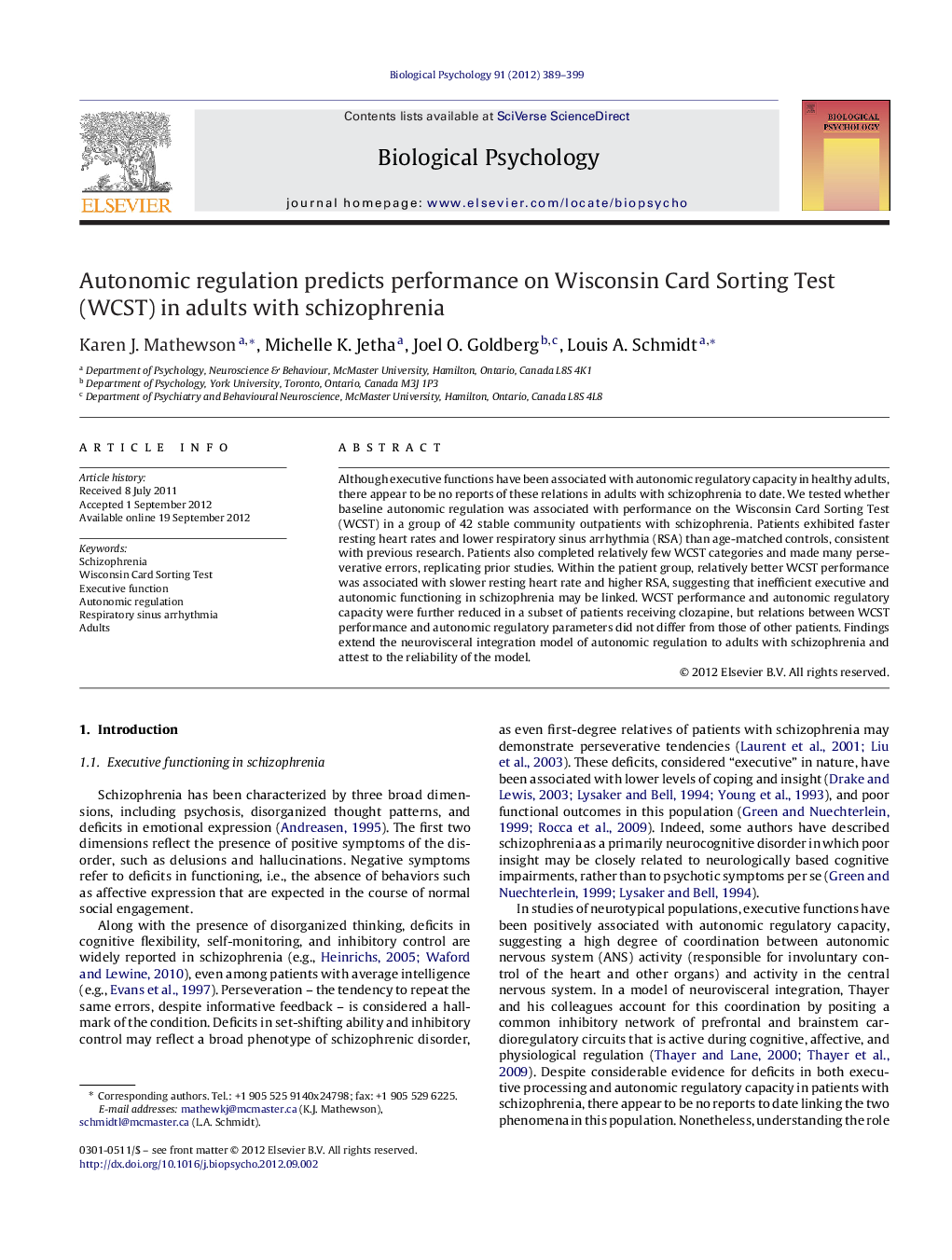| Article ID | Journal | Published Year | Pages | File Type |
|---|---|---|---|---|
| 921048 | Biological Psychology | 2012 | 11 Pages |
Although executive functions have been associated with autonomic regulatory capacity in healthy adults, there appear to be no reports of these relations in adults with schizophrenia to date. We tested whether baseline autonomic regulation was associated with performance on the Wisconsin Card Sorting Test (WCST) in a group of 42 stable community outpatients with schizophrenia. Patients exhibited faster resting heart rates and lower respiratory sinus arrhythmia (RSA) than age-matched controls, consistent with previous research. Patients also completed relatively few WCST categories and made many perseverative errors, replicating prior studies. Within the patient group, relatively better WCST performance was associated with slower resting heart rate and higher RSA, suggesting that inefficient executive and autonomic functioning in schizophrenia may be linked. WCST performance and autonomic regulatory capacity were further reduced in a subset of patients receiving clozapine, but relations between WCST performance and autonomic regulatory parameters did not differ from those of other patients. Findings extend the neurovisceral integration model of autonomic regulation to adults with schizophrenia and attest to the reliability of the model.
► Patients with chronic schizophrenia performed poorly on the Wisconsin Card Sorting Test (WCST). ► Autonomic regulatory control was lower in patients with schizophrenia than age-matched controls. ► Among patients, autonomic regulatory control was inversely correlated with perseverative (executive) errors in the WCST. ► In a subset receiving clozapine, autonomic regulatory capacity and WCST performance were further reduced, but the same relations obtained. ► Findings extend the neurovisceral integration model of autonomic regulation (Thayer and Lane, 2000) to adults with schizophrenia.
